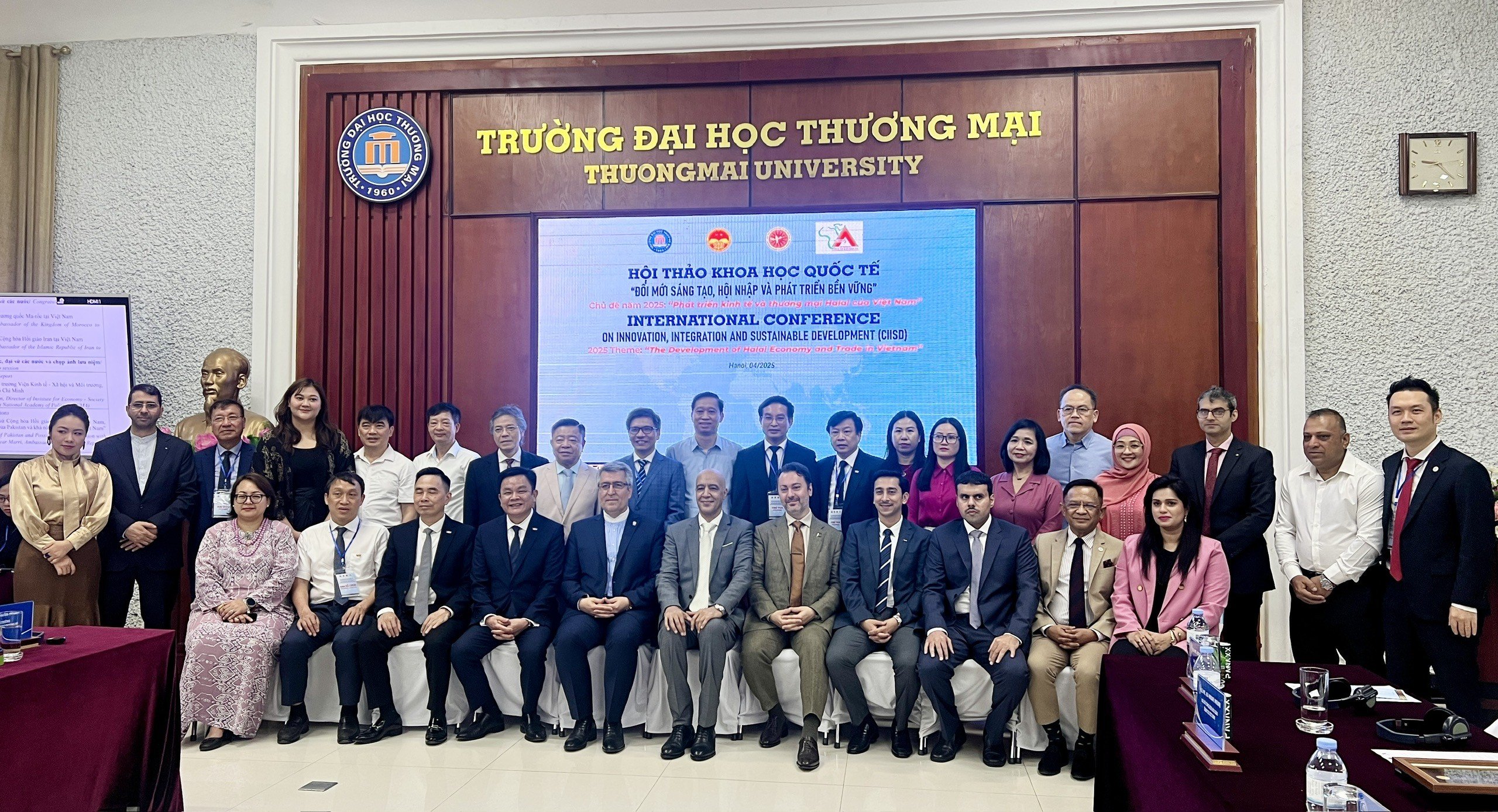 |
| International Scientific Conference on Innovation, Integration and Sustainable Development with the theme 2025: “Vietnam’s Halal Economic and Trade Development”. (Photo: Mai Anh) |
The workshop was attended by representatives of the Embassies of Algeria, Iran, Morocco, Sri Lanka, Pakistan... together with representatives of relevant agencies, departments and businesses interested in the Halal trade sector.
Speaking at the opening of the workshop, Associate Professor Dr. Nguyen Hoang, Rector of the University of Commerce, said that the workshop is a forum for scientists, managers, diplomats , businessmen, and ambassadors from various countries to share knowledge on areas related to the need, experience, current situation, and solutions for economic development and promoting the Halal goods export market. The workshop is also an opportunity for Vietnamese scholars to exchange research and project development experiences with international colleagues.
The scientific reports of the Workshop focused on the main topics: Trends, experiences in developing Halal economy and trade in the world and lessons learned for Vietnam; Institutions, strategies, and policies of the Party and State of Vietnam on opening the Halal market for international economic integration and sustainable development; Current status of developing the Halal economic and trade ecosystem in Vietnam; Solutions for developing the Halal economic and trade ecosystem and other related contents.
Dr. Tran Thi Thu Huong, lecturer at the University of Commerce, said that Halal in Arabic means “permitted” and “lawful”. Muslims only use products that meet Halal certification standards: do not contain ingredients that are prohibited or unacceptable under Islamic law; do not come into contact with vehicles, tools or materials that are illegal under Islamic regulations. During the preparation, processing, transportation and storage process, there must be no contamination from Haram ingredients (prohibited ingredients such as pork, donkey meat, fanged animals, insects, meat containing blood, etc.)... According to Dr. Le Huy Khoi, Institute for Strategy and Policy Research on Industry and Trade, Vietnam is not yet on the list of 30 typical Halal food suppliers in the world. Vietnam mainly exports simple, unprocessed agricultural products that do not require high standards for Halal certification. As of July 2024, about 41% of localities in Vietnam do not have Halal-certified export products. Therefore, Vietnam needs practical solutions from the State as well as businesses to develop this potential industry. |
Speaking at the workshop, Mr. Kohdayar Marri, Ambassador of Pakistan to Vietnam, said that if Vietnam really wants to attract Muslim tourists as well as increase exports to countries with large Muslim populations, building a comprehensive Halal ecosystem is essential. That does not stop at providing food that is suitable for beliefs, but must go further: providing a civilized, respectful and convenient space for religious activities.
To successfully export Halal products, Vietnam needs to build its reputation as a trustworthy food brand - a provider of high-quality, safe, delicious and internationally standardized meat products. A Halal label will not be meaningful without a commitment to quality, value and respect for customers. Especially when many other countries have gone ahead, invested properly and have the active participation of their own Muslim communities in the production chain.
“I see this as a valuable opportunity for Vietnam to promote cultural and religious understanding. Halal diplomacy is not just about the exchange of goods, but also about a commitment to respect, adaptability and sincerity in international relations. The Embassy of Pakistan in Vietnam is committed to accompanying Vietnam on this journey. We are ready to support, share experiences and cooperate in all aspects to explore the potential of the Halal sector with Vietnam,” said Ambassador Kohdayar Marri.
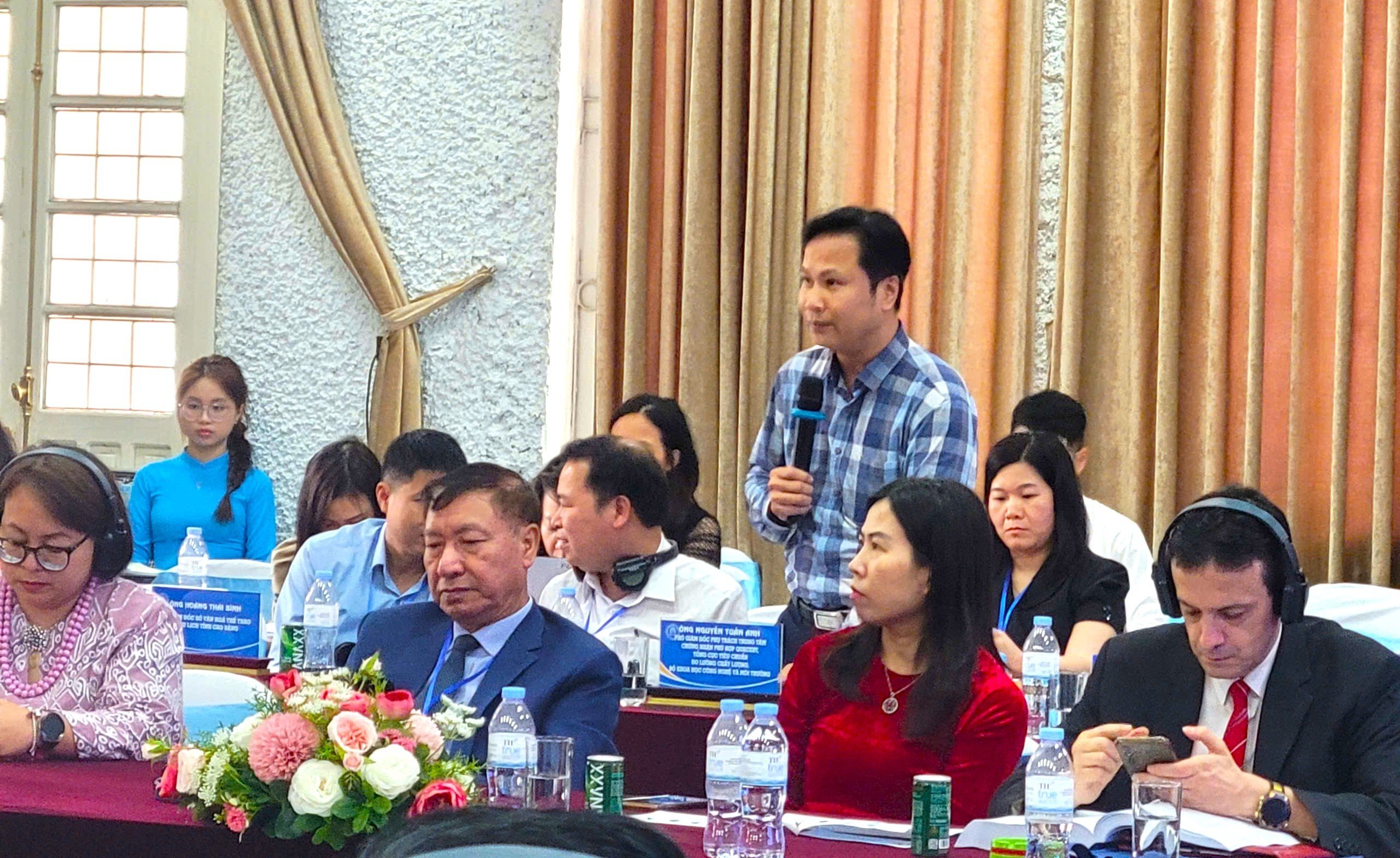 |
| Delegates discuss at the Workshop. (Photo: Cam Ly) |
At the workshop, delegates also listened to presentations such as: "Current situation and solutions for developing Vietnam's Halal product exports in the new context" by Associate Professor, Dr. Dinh Cong Hoang, Institute of South Asia, West Asia and Africa Studies; "Brazil's Halal product exports: Lessons for Vietnam" by Dr. Le Thi Tuyen, Institute of Economics - Society and Environment; "The development of Halal economy and trade in Vietnam" by Mr. Ramlan bin Osman, Director of the National Halal Certification Center...
In his closing remarks at the conference, Associate Professor Dr. Nguyen Xuan Trung, Director of the Institute for South Asian, West Asian and African Studies (Vietnam Academy of Social Sciences) highly appreciated the intellectual and dedicated contributions of the speakers that contributed to the success of the conference.
He said that the Workshop's professional board will synthesize and develop a policy proposal to send to the National Assembly's Economic and Financial Committee; the Central Strategy and Policy Committee; the Ministry of Industry and Trade; the Ministry of Culture, Sports and Tourism; the National Halal Certification Center... so that Vietnam can promote its great potential and conquer the Halal economic and trade sector in the coming time.
| Ambassador of the Kingdom of Morocco to Vietnam Jamale Chouaibi: Morocco could be the “gateway” to bring Vietnamese Halal products into the African market
To promote cooperation between Morocco and Vietnam in the Halal field, the two sides need to increase the exchange of knowledge and expertise through seminars, conferences and specialized training programs. This will help improve capacity and ensure compliance with Halal standards. Vietnamese agencies and enterprises can refer to the experience of the Moroccan Institute for Standardization (IMANOR) - a unit with strengths in the field of Halal certification, inspection, testing and application of international standards. I believe that Morocco can become a gateway for Vietnamese Halal products to access markets in Africa, the Middle East and Europe - regions with large Muslim communities. In turn, Vietnam can also support Moroccan goods to effectively penetrate the Southeast Asian market. We encourage businesses from both countries to build joint ventures, taking advantage of Morocco's advantages in Halal certification and Vietnam's advantages in production capacity. In the tourism sector, with a global Muslim community of nearly 1.8 billion people, I see great potential for joint development of tourism and accommodation services that meet Halal standards. Cooperation can be materialized through agreements and memorandums of understanding, aiming to harmonize standards and simplify certification processes between the two countries. I especially encourage Vietnamese businesses to participate in the 7th Halal Morocco Forum organized by IMANOR in June this year in Casablanca (Morocco). This is an important opportunity for businesses from both countries to meet, connect and seek cooperation opportunities. The Embassy of the Kingdom of Morocco in Vietnam is always ready to act as a bridge between the relevant parties, contributing to supporting and promoting cooperation in the Halal field. I expect that this year will see a strong increase in the exchange of business delegations between the two countries, thereby opening up many specific cooperation opportunities and deepening bilateral economic and trade relations. |
| Dr. Aemin Nasir, Lecturer at RMIT University: Need to build a “Strategic Halal Ecosystem Framework” consisting of 5 pillars
Vietnam is facing great potential from the global Halal market, especially in the context of the Asia-Pacific region accounting for nearly 48% of the population following the Halal diet. If it knows how to take advantage of the opportunity and develop in a systematic way, Vietnam can completely become the center of production and supply of Halal products in the region. I propose a “Strategic Halal Ecosystem Framework” with the following five main pillars: First, government support: Vietnam needs to build a clear and consistent legal framework for the production, certification and trading of Halal products, ensuring transparency and feasibility throughout the supply chain. This legal system needs to be referenced and harmonized with international standards, especially those of the Organization of Islamic Cooperation (OIC) and the Islamic Institute of Standards and Metrology (SMIIC). The government also needs to introduce preferential financial policies such as low-interest loans or investment subsidies to encourage businesses to participate in the Halal sector. Second, human resources: Vietnam needs to focus on training a team of Halal experts, technicians and auditors through systematic training programs at universities, colleges and vocational training centers. At the same time, short-term courses and professional certification programs should also be implemented to meet short-term market needs. Raising awareness of the community and businesses about the economic value as well as the strict requirements of the Halal market is also an indispensable factor in the process of building a professional Halal industry. Third, infrastructure: Vietnam needs to invest heavily in modern R&D centers, fully equipped with advanced testing equipment. The application of information technology, such as blockchain and QR codes, will help build a transparent and reliable traceability system for Halal products. At the same time, it is necessary to establish a set of national Halal standards, suitable for domestic conditions but still meeting the strict requirements of the international market. Fourth, production: Priority should be given to developing the Halal industry in areas with Vietnam’s traditional strengths such as aquaculture, agriculture and food processing. Building sustainable Halal supply chains is a prerequisite, ensuring compliance with principles of business ethics, social responsibility and environmental protection. Fifth, services: This is a potential sector that needs to be developed, especially logistics and tourism services. Vietnam can build hotels, restaurants, and resorts that are friendly to Muslim tourists, providing full amenities such as Halal meals, prayer rooms, and separate toilet areas. Training tourism staff on Islamic culture is necessary to ensure respectful and professional service. In addition, Vietnam should cooperate with international Halal tourism organizations such as CrescentRating or Salam Standard to promote Vietnam as an attractive and reliable destination for Muslim tourists worldwide. |
Source: https://thoidai.com.vn/ban-be-quoc-te-hien-ke-giup-viet-nam-phat-trien-kinh-te-va-thuong-mai-halal-212694.html


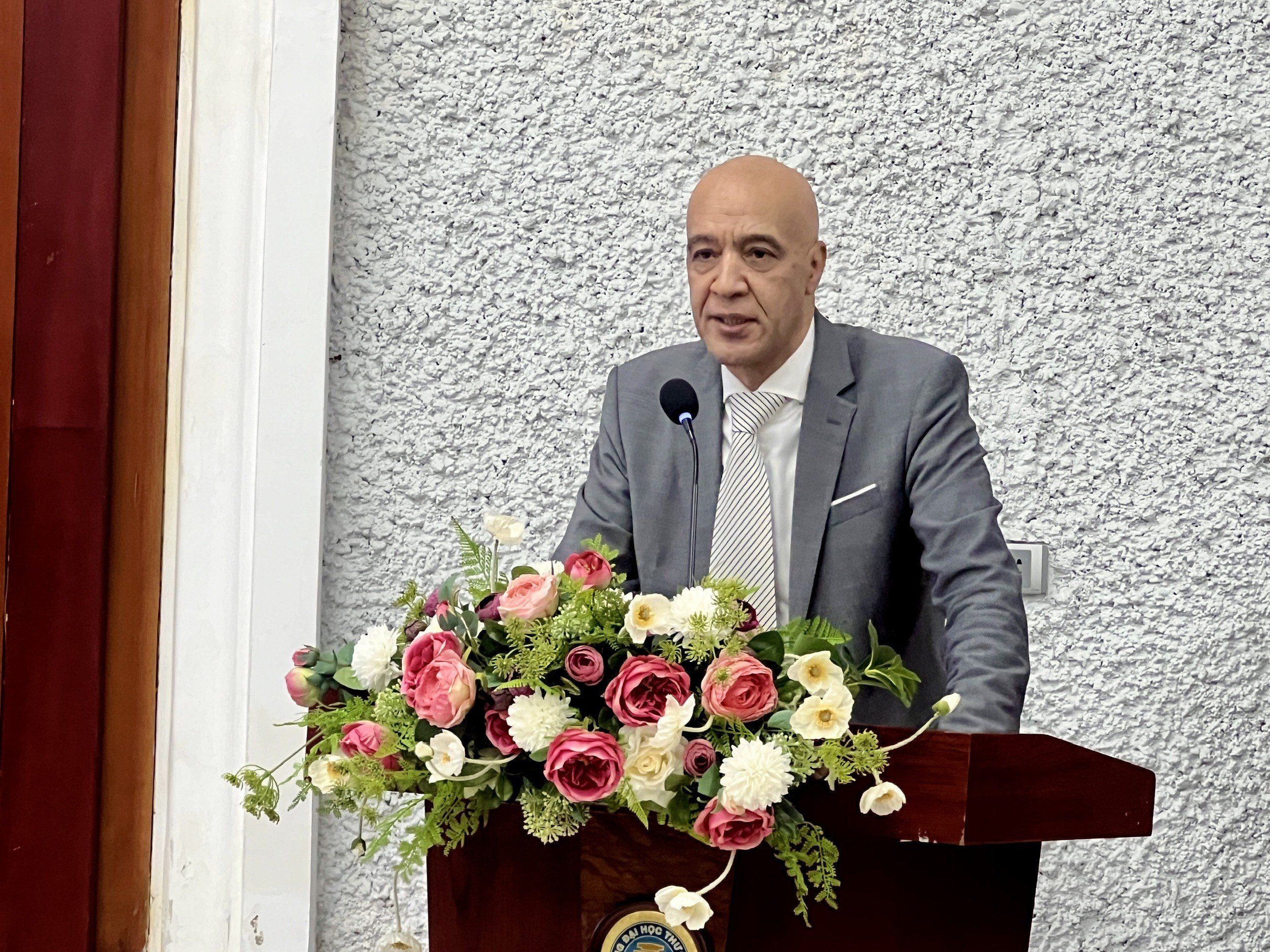
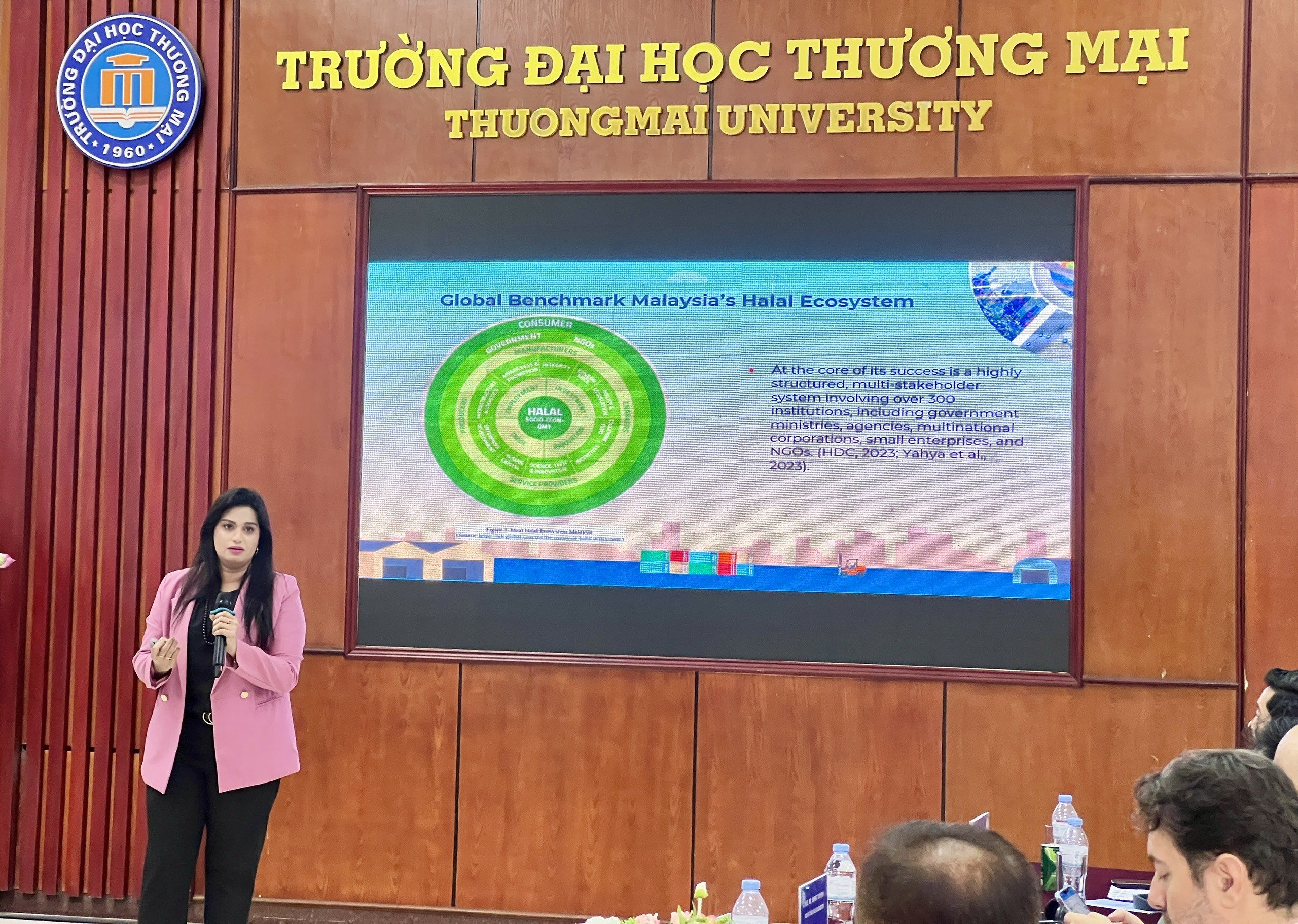

![[Photo] Panorama of the Opening Ceremony of the 43rd Nhan Dan Newspaper National Table Tennis Championship](https://vphoto.vietnam.vn/thumb/1200x675/vietnam/resource/IMAGE/2025/5/19/5e22950340b941309280448198bcf1d9)
![[Photo] Close-up of Tang Long Bridge, Thu Duc City after repairing rutting](https://vphoto.vietnam.vn/thumb/1200x675/vietnam/resource/IMAGE/2025/5/19/086736d9d11f43198f5bd8d78df9bd41)
![[Photo] President Luong Cuong presents the 40-year Party membership badge to Chief of the Office of the President Le Khanh Hai](https://vphoto.vietnam.vn/thumb/1200x675/vietnam/resource/IMAGE/2025/5/19/a22bc55dd7bf4a2ab7e3958d32282c15)
![[Photo] General Secretary To Lam attends the conference to review 10 years of implementing Directive No. 05 of the Politburo and evaluate the results of implementing Regulation No. 09 of the Central Public Security Party Committee.](https://vphoto.vietnam.vn/thumb/1200x675/vietnam/resource/IMAGE/2025/5/19/2f44458c655a4403acd7929dbbfa5039)

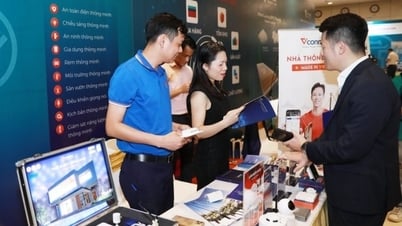
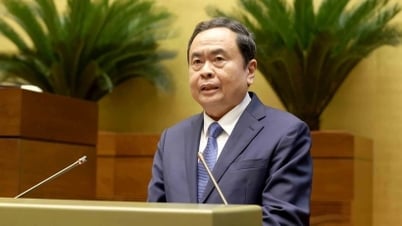
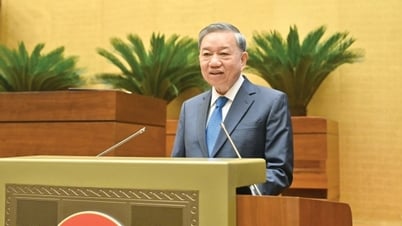
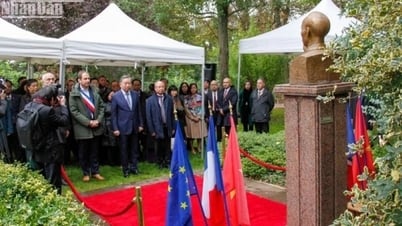
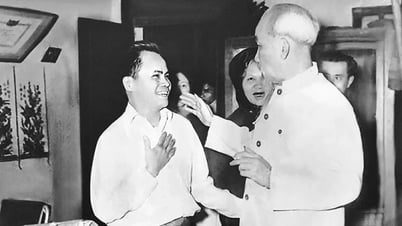
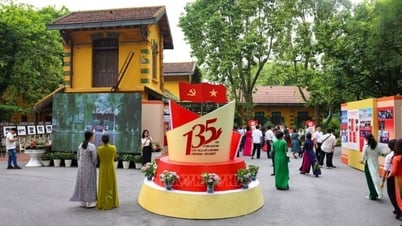




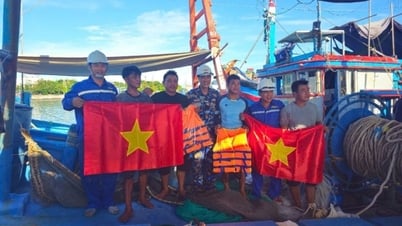
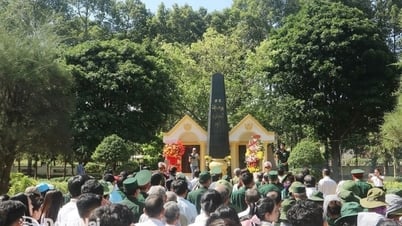
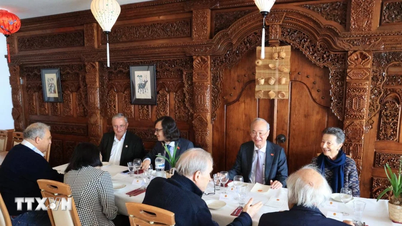
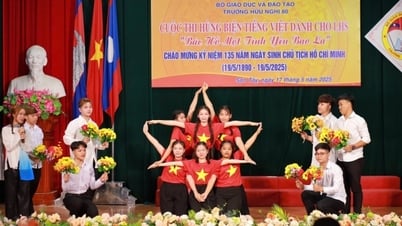
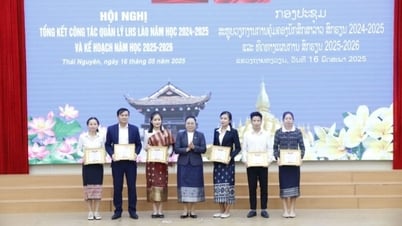

![[Photo] Prime Minister Pham Minh Chinh inspects the progress of the National Exhibition and Fair Center project](https://vphoto.vietnam.vn/thumb/1200x675/vietnam/resource/IMAGE/2025/5/19/35189ac8807140d897ad2b7d2583fbae)

















































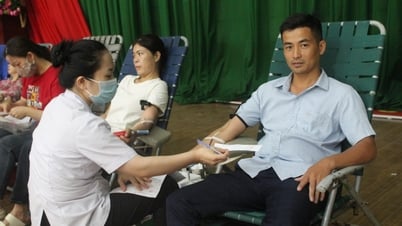



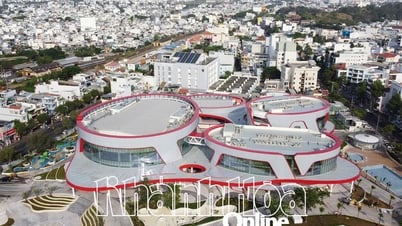

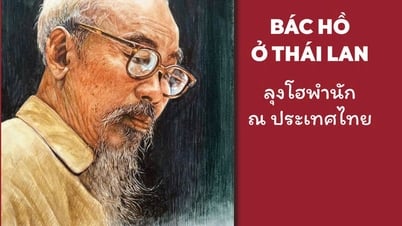

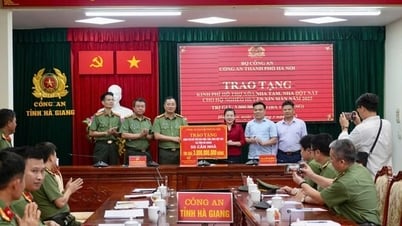




![[VIDEO] - Enhancing the value of Quang Nam OCOP products through trade connections](https://vphoto.vietnam.vn/thumb/402x226/vietnam/resource/IMAGE/2025/5/17/5be5b5fff1f14914986fad159097a677)





Comment (0)